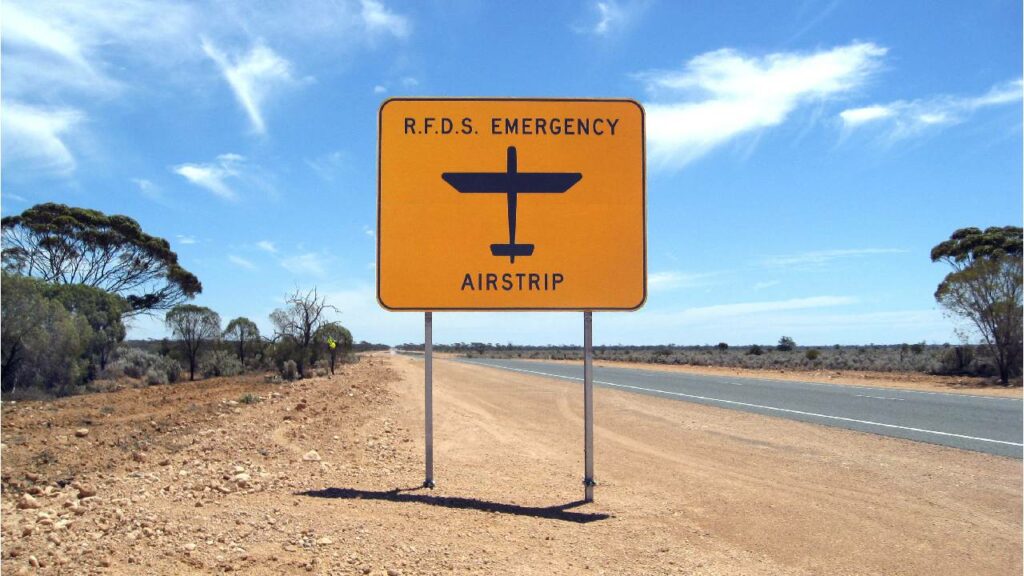Have you ever considered becoming a remote nurse? It’s a big decision, and a lot of mystery surrounds remote nursing jobs.
To help you know what you could be signing up for, here is a list of the pros and cons associated with working remote nursing jobs in Australia.
What is a Remote Nurse?

Remote nurses work in remote communities, especially in First Nations communities, often in Central and far Northern parts of Australia. As they are often one of very few medical professionals in the area, they need very diverse skill sets, and a strong ability to work autonomously.
What’s the Difference Between Remote Nursing and Telehealth Nursing
Remote and telehealth nursing are often used as interchangeable terms, but in reality they are different things. Remote nurses are named after the remoteness of the communities where they work.
On the other hand, telehealth nurses are referred to as remote because they usually work from home. They communicate with patients over the phone or virtually.
In Australia, the term ‘remote nurse’ is most associated with the type of nurse discussed in this article, those who physically relocate to remote communities.
Why Australia Desperately Needs Remote Nursing Jobs
There are two core problems that prevent remote areas from having the nurses they need.
The first is that populations are very small and socioeconomic factors reduce the number of university nurse students born in remote communities. This means that nurses can’t be sourced from within the communities themselves.
Second, it is very difficult to attract nurses to remote communities. Moving away from friends, family and their way of life is often too much of a sacrifice for people to make. This means remote communities go for long periods of time without sufficient staffing.
Because of this, the government is desperate for more people to volunteer to undertake remote nursing jobs. For the right person, remote nursing jobs have incredible benefits, but there are also drawbacks. At the end of the day, if you are considering a remote posting, you need to evaluate the pros and cons for yourself.
The Pros of Remote Nursing Jobs
There are several pros to taking on remote nursing jobs. For many nurses, their time spent providing care for remote communities is the highlight of their career.
The Pay
The most obvious benefit of remote nursing jobs is the pay. The average remote nurse salary is $113K in Australia. Compared to the average $79K salary of a Registered Nurse (RN), that is a huge difference.
Unlike in Australia’s biggest hospitals, remote communities or worksites don’t have specialised nurses for every type of career. Their staff need to be able to handle whatever situation comes their way. In fact, remote nursing is often considered a specialist role. Nurses with a broader range of skills are more equipped to handle the unpredictable nature of remote nursing, and are therefore more highly sought after – and paid.
There are also various other financial perks, like accommodation, utilities and travel allowances, as well as tax deductions.
Another benefit that can’t be understated is the job security. With remote nursing jobs so chronically understaffed, you’ll never struggle to find remote work. In fact, if you choose to specialise in it, you may find yourself routinely turning down offers.
The Travel
Australia is vast and beautiful, and most people never get to see it. Often our first instinct when we think of a holiday is to look overseas. But the truth is, Australia’s remote locations offer some of the most untouched land on Earth.
A remote nursing job gives you access to these places without having to book a tour bus or throw some cans of petrol in the back of the rover. If you find yourself not doing much on your days off, the opportunity to explore an entirely new part of the country may prove tempting.
The Communities
If you live in a city, you’re probably accustomed to a certain kind of community. Big crowds, a lot of neighbours, and probably a lot of coworkers. But in remote communities, things are completely different.
In a town with a thousand people, everyone knows each other, and your coworkers will become your closest confidants and friends. There is a sense of kinship that you just won’t find in city life.
You’ll also feel like an integral part of your community. Due to the vast distances to hospitals, your community really will rely on you. Whether it’s helping diagnose or manage chronic conditions, or providing lifesaving care, you will see how you improve the health of the community over time.
If you are, or have an interest in, being a community nurse, remote nursing is the best way to see the positive effects of your work.
The Cons of Remote Nursing Jobs
Many of the things that make remote nursing so rewarding can also be considered drawbacks.
The Isolation
While the remoteness gives you access to parts of Australia that you otherwise would never see, it also takes you away from the parts of Australia where your friends and family likely live. While you may be able to visit for holidays, for much of the year, you’ll have a very small social circle.
This is by far the biggest reason why nurses are reluctant to accept remote nursing jobs. It’s not uncommon to be thousands of kilometres from the nearest city, let alone your city! While the sense of adventure might be enticing, you need to ask yourself if you’ll be able to cope once the novelty wears off.
You are also isolated from your professional peers. Remote nurses need to possess a strong sense of autonomy because they work in small teams, or even individually. It isn’t uncommon for remote practices to go without a doctor for extended periods when holidays can’t be covered, or vacant roles can’t be filled.
The Limited Access
Life in remote Australian communities is completely different to coastal and metropolitan areas. Most of the shops you’re used to visiting aren’t there, and the ones that are shut early. The nightlife will likely consist of a single pub, and fun ways to spend a night out like going to the movies or a fancy restaurant aren’t going to happen.
Goods and services you take for granted are also scarce. Groceries and petrol are expensive, because it costs so much to freight them to remote areas. Not to mention, internet and phone coverage will be limited to core providers (likely just Telstra), and there are large blackspots where you might not get coverage at all.
In remote Australia, you can get everything you need, but you can’t get everything you want, and that can be a difficult hurdle to overcome.
The Boundaries
The boundaries between your personal and professional life tend to blend when you work a remote nursing job. If you are one of only a few nurses in a small community, everyone is a current or potential patient. Any time you walk down the street, buy some groceries, or relax in the park, people are thinking of you as a nurse.
This can be very draining, because you want to have a life outside of work where you aren’t at risk of being reminded of your work. Even worse, people may ask you for quick advice while you are out in the community.
Most remote nurses are on call for much of the time, and this can also impact your family life. With less nurses to respond to the calls, you will need to respond to a higher proportion of them.
Additionally, patients requiring emergency hospital care might need to be airlifted by the Royal Flying Doctor Service (RFDS), and you’ll spend hours having to provide critical care while waiting for the plane or helicopter to arrive.
Have You Considered a Nursing Agency?
With the pros and cons of remote nursing jobs outlined, hopefully you feel better informed to make a decision. If you are struggling to make such a large commitment, there is one way you can dip your toes in the water of remote nursing.
Nursing agencies provide travel nurses, who can visit remote communities for a fixed term, usually weeks or months, to provide assistance. This can be a great way to experience remote nursing jobs without committing to a permanent position.
Nurses Now is a leading nursing agency that offers remote placements. If you, or someone you know, would like to join an agency, get in touch today.
For more information about Nurses Now, visit our website.



